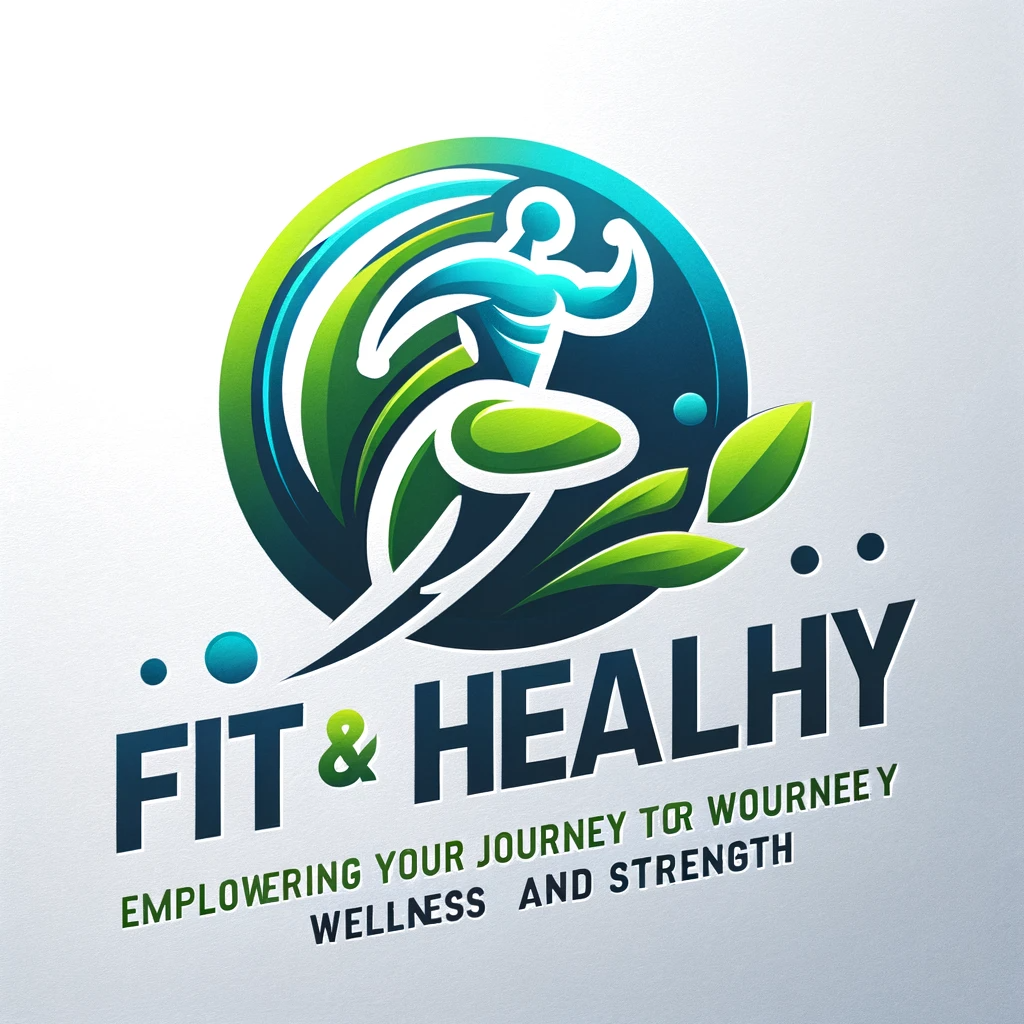Women’s wellness health needs change as you progress through different life stages. It is important to be aware of these changes and take proactive steps to maintain your well-being. From adolescence to the golden years, here are some essential health tips to help you navigate each stage of your life.
During adolescence, teenage girls experience significant physical and hormonal changes. It is crucial to prioritize your health during this time. Focus on getting enough sleep, maintaining a clean diet, and avoiding processed foods. Regular exercise, safe sex practices, and discussions with your doctor about birth control options are also important.
In your 20s
In your 20s, it’s essential to adopt healthy habits that you can carry into adulthood. Make sure to engage in regular physical activity, maintain a healthy diet, and avoid substance abuse. Prioritize preventive care with regular screenings and check-ups, and consider taking folic acid if you plan to start a family.
As you enter your 30s and 40s
As you enter your 30s and 40s, juggling multiple responsibilities becomes common. Managing stress and prioritizing self-care are crucial during this stage. Incorporate mindfulness practices, regular exercise, and a healthy diet into your routine. Don’t forget regular screenings for diseases to catch any potential issues early.
In your 50s and 60s
In your 50s and 60s, menopause brings hormonal shifts and changes. Focus on eating a predominantly plant-based diet, reducing stress levels, and maintaining open communication with your healthcare provider about cholesterol and blood pressure. Regular exercise and check-ups will also help you stay healthier and happier during this stage.
As you age into your 70s and beyond
As you age into your 70s and beyond, maintaining strength and balance becomes a priority. Regular exercise, fall prevention strategies, and daily routine adherence are crucial. Make sure to schedule regular check-ups and eye exams to catch any potential concerns early.
Regardless of the life stage you’re in, maintaining a healthy lifestyle is key. Avoid activities that can increase disease risk, incorporate regular exercise, eat a balanced diet, and stay socially engaged. By prioritizing your health, you can enhance your overall well-being throughout your life.
Remember to schedule regular well-woman exams, discuss any concerns or symptoms with your healthcare provider, and undergo recommended screenings. Taking these proactive measures will help identify potential health issues early and promote long-term wellness.
Key Takeaways:
- Women’s health needs change across different life stages.
- Prioritize sleep, diet, and exercise during adolescence.
- Develop healthy habits in your 20s and prioritize preventive care.
- Manage stress and practice self-care during your 30s and 40s.
- Focusing on a plant-based diet and open communication with healthcare professionals is important during menopause.
Health Tips for Teenage Girls
During the teenage years, girls experience significant physical and hormonal changes. It is crucial for teenage girls to prioritize their health and well-being. Here are some essential health tips to help teenage girls navigate this transformative stage of their lives:
1. Get Enough Sleep
Sleep plays a vital role in promoting both physical and mental health. Aim for at least 8-10 hours of quality sleep each night to ensure optimal well-being.
2. Maintain a Clean Diet
Eating a nutritious diet is essential for teenage girls to support proper growth and development. Focus on consuming a variety of fruits, vegetables, whole grains, lean proteins, and healthy fats.
3. Avoid Processed Foods and Sugary Drinks
Limit your intake of processed foods and sugary drinks, as they can negatively impact your overall health and contribute to weight gain and hormonal imbalances.
4. Engage in Regular Exercise
Physical activity not only helps maintain a healthy weight but also improves mood and boosts energy levels. Aim for at least 60 minutes of moderate to vigorous exercise most days of the week.
5. Practice Safe Sex
If you choose to engage in sexual activity, make sure to practice safe sex by using appropriate protection to prevent sexually transmitted infections (STIs) and unintended pregnancies.
6. Discuss Birth Control Options with a Doctor
If you are considering becoming sexually active or need contraception for other reasons, consult with a healthcare provider to discuss birth control options that are safe and suitable for you.
“The teenage years are a critical time for girls to establish healthy habits that can have a lasting impact on their well-being.” – Dr. Emily Thompson, Pediatrician
By following these health tips, teenage girls can take control of their well-being and lay the foundation for a healthy future. Remember to prioritize self-care and seek guidance from healthcare professionals for any concerns or questions you may have.
Health Tips for Women in their 20s
Women in their 20s have a unique opportunity to establish healthy habits that can benefit them throughout their lives. By prioritizing their well-being and making proactive choices, women in this age group can set a strong foundation for a healthy future.
To support your overall health and wellness, consider the following health tips:
- Stay physically active: Engaging in regular physical activity, including both cardiovascular exercises and strength training, can help you maintain a healthy weight, improve your mood, and reduce the risk of chronic diseases.
- Maintain a balanced diet: Eating a variety of nutrient-rich foods, including fruits, vegetables, whole grains, lean proteins, and healthy fats, can provide your body with the essential nutrients it needs for optimal functioning.
- Avoid substance abuse: In your 20s, it’s important to make conscious choices about substance use. Limiting alcohol consumption and avoiding recreational drug use can help protect your physical and mental health.
- Get regular check-ups and screenings: Prioritize preventive care by scheduling regular check-ups with your healthcare provider. This includes screenings such as Pap smears, breast exams, and sexually transmitted infection (STI) testing.
- Consider taking folic acid: If you’re planning to start a family in the future, it’s recommended to take a daily folic acid supplement. Folic acid not only plays a crucial role in fetal development but also helps prevent certain birth defects.
To give you a visual representation, here’s a quick overview of these health tips:
| Health Tips for Women in their 20s |
|---|
| Stay physically active |
| Maintain a balanced diet |
| Avoid substance abuse |
| Get regular check-ups and screenings |
| Consider taking folic acid |
Adopting these healthy habits during your 20s can contribute to your overall well-being and set the stage for a healthier future.
Health Tips for Women in Their 30s and 40s
As a woman in your 30s and 40s, you are likely juggling multiple responsibilities, from caring for your children to managing work demands and supporting aging parents. With so much on your plate, it’s crucial to prioritize your self-care and take proactive steps to maintain your health and well-being. Here are some essential health tips to help you navigate this busy and transformative period of your life.
1. Make Time for Mindfulness
Managing stress is vital during this phase of life as it can impact both your physical and mental health. Incorporating mindfulness practices into your daily routine, such as meditation or deep breathing exercises, can help you stay grounded, reduce anxiety, and improve overall well-being.
2. Stay Active and Exercise Regularly
Regular exercise is not only beneficial for maintaining a healthy weight but also for managing stress and boosting your energy levels. Aim for at least 150 minutes of moderate-intensity aerobic activity or 75 minutes of vigorous activity each week. Additionally, include strength training exercises at least twice a week to keep your muscles strong and healthy.
3. Follow a Healthy Diet
Eating a balanced diet that includes plenty of fruits, vegetables, whole grains, lean proteins, and healthy fats is essential for overall health and disease prevention. Limit your intake of processed foods, sugary drinks, and saturated fats. Opt for nutritious snacks, such as nuts and seeds, and stay hydrated by drinking plenty of water throughout the day.
4. Schedule Regular Screenings
Regular screenings and check-ups are crucial for identifying potential health concerns early on. Schedule appointments with your healthcare provider to discuss screenings for diseases such as diabetes, thyroid issues, and cardiovascular risk factors. Early detection and intervention can greatly improve treatment outcomes.
5. Prioritize Sleep
Adequate sleep is essential for your overall health and well-being. Aim for 7-9 hours of quality sleep each night. Create a relaxing bedtime routine, avoid electronic devices before bed, and ensure your bedroom is cool, dark, and quiet for optimal sleep.
By incorporating these health tips into your daily life, you can prioritize self-care, prevent diseases, and promote your overall well-being during your 30s and 40s.
Health Tips for Women in their 50s and 60s
As women enter their 50s and 60s, they experience significant hormonal shifts and changes due to menopause. This phase can bring on various symptoms such as insomnia, hot flashes, and mood changes. It is essential for women in this age group to prioritize their health and well-being. Here are some health tips tailored specifically for women in their 50s and 60s:
- Eat a predominantly plant-based diet: Incorporating a variety of fruits, vegetables, whole grains, and lean proteins into your diet can help alleviate menopausal symptoms and support overall health. Avoiding processed foods and excessive sugar intake is also crucial.
- Reduce stress levels: Menopause can sometimes be accompanied by increased stress and anxiety. Practicing relaxation techniques such as deep breathing exercises, meditation, or yoga can help reduce stress levels and promote a sense of calm.
- Engage in regular exercise: Regular physical activity not only helps maintain a healthy weight but also improves mood and reduces the risk of certain health conditions. Aim for a mix of cardiovascular exercises, strength training, and flexibility exercises.
- Open communication about sex: Menopause can bring changes to sexual health and desire. It is important to have open and honest communication with your partner about your needs and concerns. Seek advice from healthcare professionals to address any challenges you may be experiencing.
- Discuss cholesterol and blood pressure with healthcare providers: As women age, monitoring cholesterol and blood pressure levels becomes even more crucial. Regular check-ups with healthcare providers can help identify potential risks and ensure appropriate management.
By adopting these health tips, women in their 50s and 60s can navigate the transitional phase of menopause with greater ease. Remember, it is essential to consult with healthcare professionals for personalized advice and guidance based on your specific health needs.
Health Tips for Women in their 70s and beyond
As women age into their 70s and beyond, it’s common to experience changes in focus, balance, and agility. Taking proactive steps to maintain health and prevent falls becomes crucial during this life stage. Here are some important health tips for women in their 70s and beyond:
- Stay physically active: Engaging in regular exercise, including cardiovascular and strength training, helps maintain strength, balance, and overall mobility. It’s important to consult with a healthcare professional before starting any new exercise regimen to ensure safety and suitability.
- Go for regular check-ups: Keeping up with regular check-ups and screenings is essential for early detection of any health issues. Regular visits to healthcare providers allow for timely interventions and effective management of any existing conditions.
- Schedule eye exams: Vision changes are common as we age, and regular eye exams help detect and manage age-related eye conditions. It’s crucial to maintain good vision for overall safety and well-being.
- Stick to a daily routine: Establishing a daily schedule for meals, bedtime, and waking time helps maintain optimal health. Consistency in routine promotes better sleep patterns, mental clarity, and overall well-being.
Focusing on fall prevention, regular check-ups, vision health, and maintaining a daily routine are key factors in supporting the health and well-being of women in their 70s and beyond.
| Health Tips for Women in their 70s and beyond | Description |
|---|---|
| Stay physically active | Engage in regular exercise, including cardiovascular and strength training. |
| Go for regular check-ups | Attend regular check-ups and screenings to detect and manage health issues. |
| Schedule eye exams | Regularly visit an eye care professional to monitor and manage vision health. |
| Stick to a daily routine | Establish a consistent daily schedule for meals, bedtime, and waking time. |
Importance of Maintaining Healthy Lifestyle Habits
The key to wellness throughout a woman’s life, including during the golden years, is maintaining healthy lifestyle habits. By incorporating these habits into daily life, women can enhance their overall well-being and reduce the risk of diseases.
- Avoid activities that increase the risk of certain diseases and conditions.
- Eat a clean and balanced diet, rich in fruits, vegetables, whole grains, and lean proteins.
- Engage in regular exercise that includes cardiovascular workouts, strength training, and flexibility exercises.
- Stay mentally sharp by challenging your brain with puzzles, reading, or learning new skills.
- Stay socially engaged by maintaining relationships, participating in community activities, and pursuing hobbies.
Maintaining a healthy lifestyle is not only about physical health; it also has a positive impact on mental and emotional well-being. Taking care of your body and mind can greatly contribute to a higher quality of life and disease prevention.
Remember, small changes can make a big difference. By prioritizing healthy habits and making them a part of your daily routine, you can improve your overall wellness and enjoy a healthier life.
| Benefits of Healthy Lifestyle Habits: | Disease Prevention: |
|---|---|
| Increased energy levels and improved mood | Reduced risk of chronic diseases such as heart disease, diabetes, and certain cancers |
| Better weight management and improved body composition | Lowered risk of osteoporosis and other bone-related conditions |
| Enhanced cognitive function and reduced risk of cognitive decline | Improved immune system function |
| Lowered stress levels and improved mental well-being | Improved longevity and overall healthspan |
Supporting Women’s Health Through Each Life Stage
Women’s health needs evolve as they progress through different life stages, and it’s crucial to prioritize their well-being. One of the key ways to support women’s health is by scheduling regular well-woman exams, which include preventive care screenings and discussions about any concerns or symptoms.
Well-woman exams are comprehensive check-ups that focus on women’s specific health needs. These exams usually include:
- Breast exams: To detect any abnormalities or signs of breast cancer.
- Pap smears: To screen for cervical cancer or any precancerous changes.
- Screenings for sexually transmitted infections (STIs): To identify and treat any infections.
- Blood pressure and cholesterol checks: To monitor cardiovascular health.
- Screenings for osteoporosis: To assess bone density and detect early signs of bone loss.
By undergoing these screenings regularly, women can identify potential health issues early on and take preventive measures to promote long-term wellness. Well-woman exams also provide an opportunity to discuss reproductive health, family planning, and any concerns related to women’s health.
Additionally, it’s important for women to stay informed about other preventive care measures specific to their life stage. This may include getting recommended vaccines, such as the HPV vaccine, regular mammograms for breast cancer screening, or bone density tests for postmenopausal women.
By prioritizing well-woman exams and staying proactive in preventive care, women can take control of their health and ensure their well-being throughout each life stage.

Tips to Support Women’s Health at Any Age
Regardless of the life stage, women can take steps to support their health at any age. By prioritizing their health, women can ensure their well-being throughout their lives. Here are some essential tips to help women maintain their health and vitality:
1. Manage Stress Levels
Stress can have a significant impact on women’s health. Learning effective stress management techniques such as deep breathing exercises, meditation, and engaging in activities that bring joy and relaxation can help reduce stress levels and promote overall well-being.
2. Incorporate Regular Exercise
Regular exercise plays a crucial role in maintaining women’s health. Engaging in activities such as walking, jogging, swimming, or attending fitness classes can improve cardiovascular fitness, strengthen bones, and boost mood. Aim for at least 150 minutes of moderate-intensity exercise per week.
3. Practice Preventive Care Through Screenings and Immunizations
Preventive care is vital for early detection and treatment of potential health issues. Women should schedule regular screenings for conditions such as breast cancer, cervical cancer, and osteoporosis. Stay up to date with immunizations such as flu shots, tetanus boosters, and HPV vaccines.
4. Maintain a Healthy Diet
A well-balanced diet is essential for optimal women’s health. Include plenty of fruits, vegetables, whole grains, lean proteins, and healthy fats in your diet. Limit processed foods, sugary snacks, and drinks. Stay hydrated by drinking an adequate amount of water throughout the day.
5. Seek Help and Support When Needed
It’s important for women to seek help and support when facing health challenges. Whether it’s consulting with a healthcare professional about specific symptoms or seeking emotional support from loved ones, reaching out for assistance can make a significant difference in overall well-being.
Remember, taking care of your health is a lifelong commitment. By incorporating these tips into your daily routine, you can support your well-being and lead a healthy, fulfilling life.
Conclusion
Women’s wellness is a journey that spans different life stages, each with its own set of health needs. By prioritizing their well-being and adopting a healthy lifestyle, women can navigate these stages with grace and vitality. From teenage years to the golden years, there are key health tips and habits that can support women’s overall wellness.
Self-care is essential throughout a woman’s life. Taking time for oneself, practicing stress management techniques, and prioritizing mental and emotional well-being can have a profound impact on overall health. Regular check-ups and preventive care measures, such as screenings and immunizations, also play a crucial role in maintaining optimal health.
Embracing a healthy lifestyle is a powerful way for women to enhance their well-being. This includes engaging in regular physical activity, adopting a balanced and nutritious diet, and nurturing strong social connections. By incorporating these habits into daily life, women can promote their overall health and wellness at every age and stage of life.
In conclusion, as women navigate the different stages of life, it is important to be proactive in caring for their health. By following these health tips and embracing a healthy lifestyle, women can nurture their well-being and thrive in every aspect of their lives.
FAQ
What are some health tips for teenage girls?
Teenage girls should prioritize their health by getting enough sleep, maintaining a clean diet, exercising regularly, and practicing safe sex. They should also discuss birth control options with a doctor.
What healthy habits should women in their 20s adopt?
Women in their 20s should focus on regular physical activity, maintaining a healthy diet, avoiding substance abuse, and prioritizing preventive care, such as regular screenings and check-ups.
How can women in their 30s and 40s prioritize their health?
Women in their 30s and 40s should prioritize self-care and manage stress through mindfulness practices, exercise, and a healthy diet. Regular screenings for diseases and risk factors are also important.
What are some health tips for women in their 50s and 60s?
Women in their 50s and 60s should focus on a predominantly plant-based diet, avoiding processed foods, and reducing stress levels. Regular exercise, open communication about sex, and discussions with healthcare providers about cholesterol and blood pressure are also important.
How can women in their 70s and beyond maintain their health?
Women in their 70s and beyond should prioritize fall prevention, maintain strength and balance through regular exercise, schedule regular check-ups and eye exams, and adhere to a daily schedule for meals, bedtime, and waking time.
Why is it important to maintain healthy lifestyle habits?
Maintaining healthy lifestyle habits is crucial for disease prevention and overall well-being. These habits include avoiding activities that increase disease risk, maintaining a balanced diet, regular exercise, maintaining cognitive health, and staying socially engaged.
How can women support their health through each life stage?
Women should prioritize their health by scheduling regular well-woman exams, discussing concerns or symptoms, and undergoing recommended screenings and preventive care measures. This can help identify potential health issues early and promote long-term wellness.
What are some tips to support women’s health at any age?
Women can support their health at any age by managing stress levels, incorporating regular exercise into their routines, practicing preventive care through screenings and immunizations, maintaining a healthy diet, and seeking help and support when needed.
How can women promote their well-being and manage health needs?
Women can promote their well-being and manage their health needs by following these health tips and adopting a healthy lifestyle. Prioritizing self-care, seeking regular check-ups, and staying proactive in disease prevention can help women live their best and healthiest lives.
(H3>Q: What is women’s wellness and why is it important?
Women’s wellness is a lifelong journey that requires attention and care at every stage of life. By following these health tips and adopting a healthy lifestyle, women can promote their well-being and manage the unique health needs that arise at various life stages. Prioritizing self-care, seeking regular check-ups, and staying proactive in disease prevention can help women live their best and healthiest lives.
Related Articles
- Boost Your Life with Essential Health and Fitness Tips
- Unlock Your Potential with Physical Fitness Exercise
- Muscle Recovery Tips After Weightlifting Secrets
- Mindfulness Meditation for Stress Relief Guide











Leave a Reply